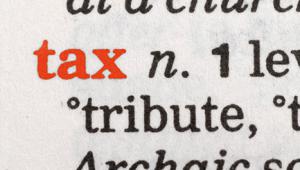The meeting was for members of the OECD’s “inclusive framework”, under which the think-tank says all interested jurisdictions can participate in its Base Erosion and Profit Shifting project.
The OECD said the meeting, which concludes today, marks the first time a broad range of countries representing varying levels of development have come together on an “equal footing”.
Pascal Saint-Amans, director of the OECD Centre for Tax Policy and Administration, hailed the meeting as marking a “new era in international tax”.
“Through their participation in the decision-making as well as the technical working groups of the OECD’s Committee on Fiscal Affairs, the members of the inclusive framework will now have a direct influence in shaping international tax rules to tackle BEPS and ensuring a level playing field.”
The OECD published its finalised recommendations to prevent companies from taking advantage of loopholes in the international tax architecture to artificially shift projects to lower tax or no tax jurisdictions – known as base erosion and profit shifting – in September last year.
While celebrated as a step forward in preventing corporate tax avoidance, critics argued that the reforms do not go far enough, especially for developing countries which suffer the most from corporate tax avoidance.
The OECD was dubbed a ‘rich man’s club’ that catered to its wealthy members at the expense of the world’s poorest countries, to which the reforms were not well suited.
There have since been calls for global tax initiatives to be led by a more representative body, such as the United Nations.
In February of this year, the OECD launched the inclusive framework to broaden the participation in the BEPS project.
Those who aren’t members of the OECD join as “associates”, which the think-tank says work on an “equal footing” with OECD and G20 members on standard-setting and review and monitoring of the implementation of the BEPS package.
The number of countries that have formally joined the inclusive framework currently stands at 36, bringing the total number of countries participating in the BEPs project to 82.
The OECD said a further 21 that attended the meeting, including Cambodia, Panama, Guinea-Bissau, the Seychelles and Myanmar, are likely to join in the coming months.
International organisations and regional tax bodies also participated, and special sessions were held with business and civil society representatives.
The OECD said participants started to undertake remaining work to be done on standard-setting in certain areas, as well as the development of practical guidance to support a consistent and global implementation of BEPS.
A particular focus has been placed on issues that are priorities for the world’s poorer countries, including harmful tax practices, tax treaty abuse, country-by-country reporting and dispute resolution mechanisms.












